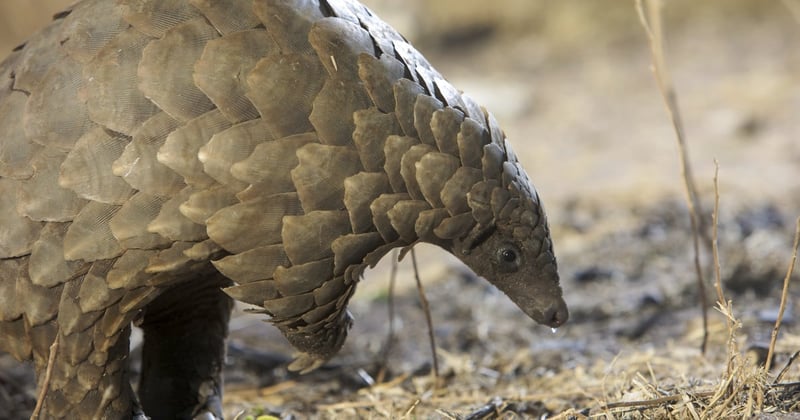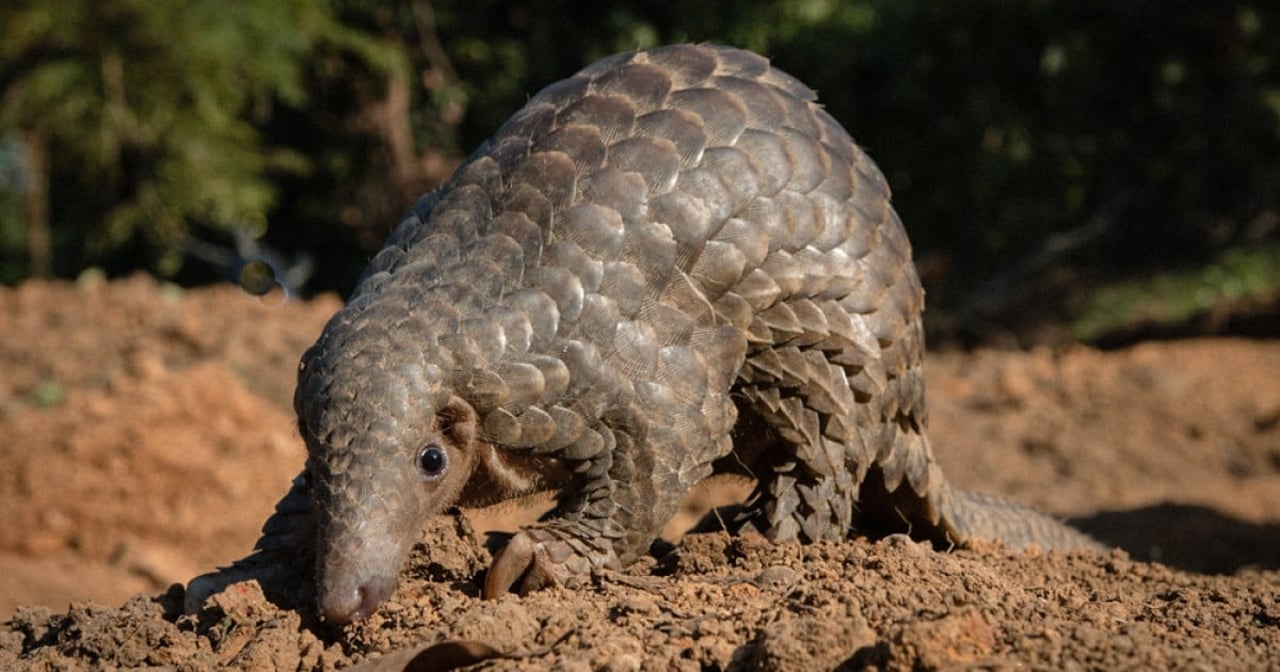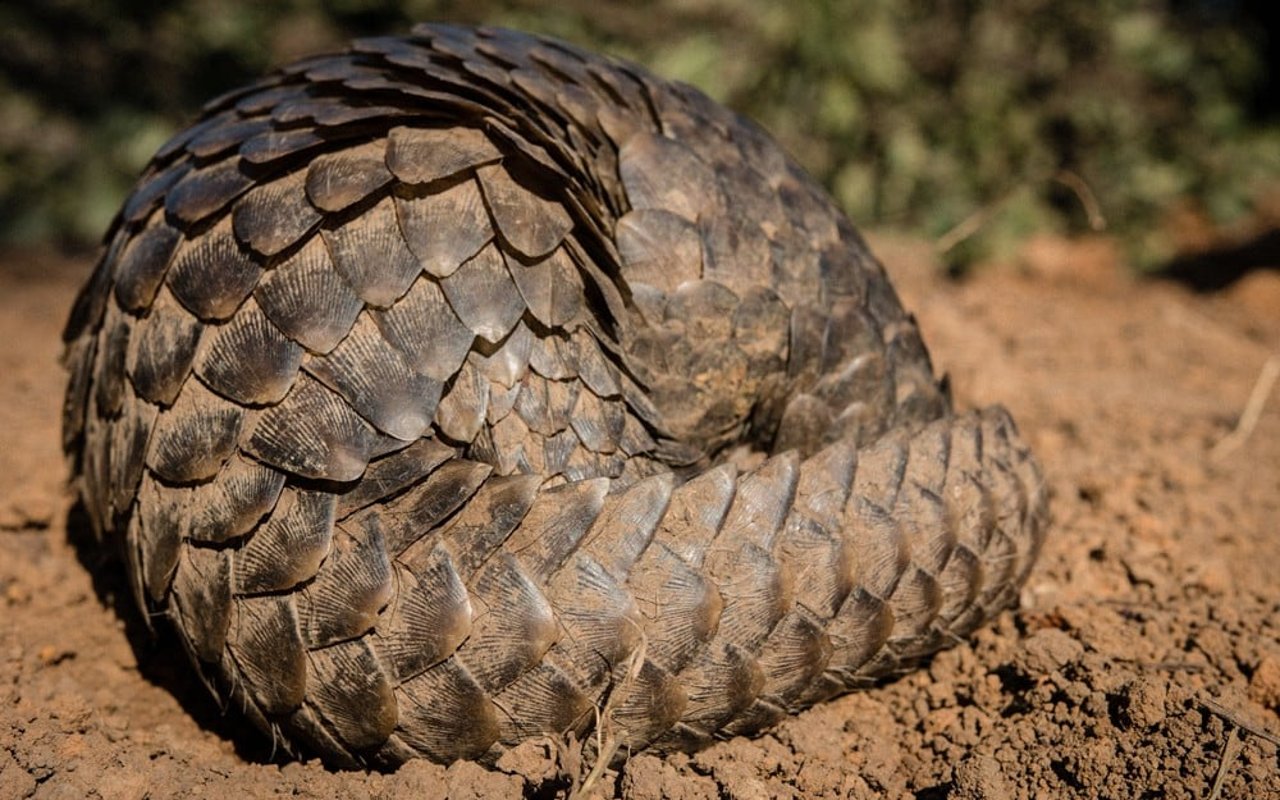
Celebrate World Pangolin Day with us by learning about this amazing animal.
Pangolins have existed for approximately 80 million years, but most people haven’t heard of them. They even hold a world record--but sadly, it’s not a positive one. Did you know that pangolins hold the world record for the most trafficked mammal in the world?
Pangolins might look like the offspring of a pinecone and artichoke, but they need our love now more than ever. Here are five facts about pangolins:
1. A diet of ants - Bon appétit!
Pangolins are also known as “scaly anteaters” because…you guessed it, they feed on ants. They are insectivorous, so their diet also includes termites, larvae, and other small insects.
Using their long snouts and tongues, they can feed on up to 70 million insects every year.
2. Thick-skinned
Pangolin scales are made of keratin, the same protein that makes up our own hair and nails and many animals’ claws. The scales cover almost their whole body (except their underside), and they make up roughly 20% of their body weight.
3. Fight, flight, or roll?
Their name “pangolin” is derived from the Malay word “pengguling,” which loosely translates to “something that rolls up” – and indeed, they do! To defend themselves when feeling threatened, the small mammals roll up in a ball, just like hedgehogs and armadillos.
4. Lots of distant cousins
There are eight species of pangolins (four Asian and four African), and they can be found in 51 different countries, living in trees or burrows.
5. Pangolins are in danger
The biggest threat to pangolins is humans. These animals are hunted and mercilessly killed for their scales to be sold on the black market for use in traditional Asian medicine. All eight species of pangolins are featured on the IUCN Red List of Threatened Species, on par with rhinos and tigers. Even environmental and animal advocate David Attenborough named pangolins in his list of top 10 endangered animals.
The commercial trade of pangolin parts is forbidden under CITES as of 2016. Despite such restrictions, the demand for these parts continues to rise, putting worldwide pangolin populations at risk.
To combat this global trade and prevent protect the world’s pangolins, we’re calling for:
- Stronger enforcement of national and international laws
- Removal of pangolins from the Pharmacopoeia of the People’s Republic of China – the traditional medicine handbook for the industry
- Investment in and promotion of herbal and synthetic alternatives
- Combined and coordinated efforts by governments, NGOs, and the traditional Asian medicine community to eliminate consumer demand for pangolin-based traditional Asian medicines, particularly in China and Vietnam
- Support for alternative livelihoods, alleviation of poverty, and education programs within rural communities wherever pangolins are found globally, to stop the slaughter
Pangolins are on the brink of extinction. Possibly even more distressing is the cruelty that is often inflicted on these gentle creatures before they are killed.
How you can help:
Pledge to protect pangolins. By becoming a Pangolin Protector, you pledge to demand an end to pangolin poaching and speak out against the harmful global wildlife trade that puts pangolins in danger.

